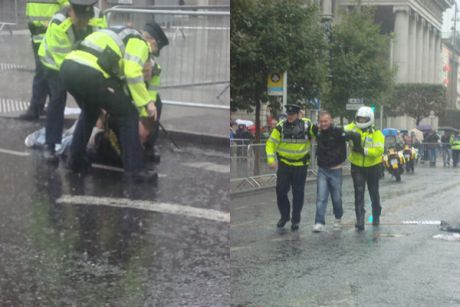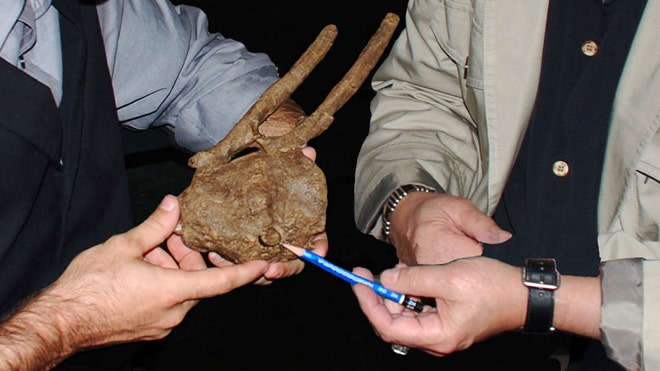Nuns say they will not pay compensation to the Magdalene laundries fund
FOUR CONGREGATIONS WILL NOT CONTRIBUTE TO FUND, WHICH COULD COST STATE UP TO €58 MILLION


The Mercy Sisters, the Sisters of Our Lady of Charity, the Sisters of Charity and the Good Shepherd Sisters have informed Minister for Justice Alan Shatter in recent days that they will not pay into the fund, which could cost up to €58 million.
However, it is understood they have said they are willing to assist fully in all other aspects of the package recommended by MrJustice John Quirke in his recent report, including the assembly of records and looking after former residents who remain in their care.
A spokeswoman for Mr Shatter said he was “disappointed” with the decision of the four orders not to make a financial contribution.
He will brief his ministerial colleagues about the situation at the weekly Cabinet meeting this morning.
No comment
Three of the four orders contacted through a spokesman were not prepared to make any comment at this point in time.
Three of the four orders contacted through a spokesman were not prepared to make any comment at this point in time.
The Government announced the scheme last month after Mr Justice Quirke had conducted an examination of the various options to compensate the women who lived in the laundries, many of whom are now elderly.
The minimum payment was €11,500 for women who spent three months or less in a laundry and the maximum approved was €100,000 for those who were residents for 10 years or more.
Groups representing the women argued that higher awards should have been made available to those who had been long-term residents.
There was no onus on any applicant to show they had suffered hardship, injury or abuse. Some 600 women are reckoned to be eligible. The scheme is expected to cost between €34.5 million and €58 million.
When the scheme was announced, Mr Shatter said taxpayers expected the four religious orders to share the burden and make a contribution to the scheme. He would not be drawn on the amount he expected them to contribute.
State apology
The scheme follows on from a full apology on behalf of the State made to the survivors by Taoiseach Enda Kenny in the Dáil this year, in which he said that nobody should have been subjected to the conditions they endured.
The scheme follows on from a full apology on behalf of the State made to the survivors by Taoiseach Enda Kenny in the Dáil this year, in which he said that nobody should have been subjected to the conditions they endured.
That apology came in the wake an investigation by former senator Martin McAleese into the running and conditions within the laundries which were in operation for the best part of a century.
The report also established that the State had played a significant role in the continued operation of the laundries.
Fewer Irish people saving now as austerity erodes our disposable income
PROPORTION OF PEOPLE NOT SAVING AT ALL INCREASES TO 46 PER CENT AS AUSTERITY BITES
Fewer Irish people are saving money because of the ongoing pressure on disposable income caused by austerity and recent hikes in Dirt tax.
According to the Nationwide UK (Ireland)/ESRI Savings Index, regular saving has declined across all age groups with only 32 per cent of people putting money aside regularly compared with 36 per cent a year ago.
The proportion of people who are not saving at all increased to 46 per cent in June from 43 per cent a year ago.
The overall index remained flat at 86 in June but was down 15 points on the same month last year on account of “increasing negativity about the amount being saved and the environment for saving”.
The report suggested negativity towards saving, however, was different for each age group.
People under 50 are concerned with the amounts they are currently saving, with 68 per cent saving less then they think they should and only 12 per cent happy with the amount they are saving, the report revealed.
In contrast, those over 50 are more concerned with the savings environment as 62 per cent believe that Government policy discourages saving, an increase from 53 per cent a year ago.
Managing director of Nationwide UK (Ireland) Brendan Synnott said: “In the past year sentiment towards saving has decreased considerably as people continue to manage their way through austerity.
“We are now seeing clearly diverging opinions being expressed by those aged under 50s compared to those aged over 50.”
“The younger consumer is clearly not satisfied with their ability to save, presumably due to their on-going day to day expenses and reduced disposable income.”
“The over 50s are the traditional saver in the economy and this group has seen the return on their savings reduced as Dirt tax has increased and savings rates for the most part have decreased.”
“Despite these immediate concerns around saving, the fact that 37 per cent of people would save any spare cash available is a positive indicator about the overall savings culture in Ireland. ”
Pension bonanza for retiring senior members of An Garda Siochana
Assistant Garda commissioner received golden handshake of over €200,000 last year
New figures show that one retiring assistant Garda commissioner received a golden handshake of over €200,000 last year as part of a pension arrangement.
According to figures released by the Department of Justice under the Freedom of Information Act, the State paid out €41.94 million in lump sums to retiring gardai of all ranks last year. This followed a lump sum pension pay-out of €46.81 million in 2011.
The pension lump sum payout last year is slightly more than the entire Garda overtime bill of €41.5 million in 2012.
The figures show that the only assistant commissioner to retire last year received a lump sum of €207,927 with five chief superintendents receiving pension lump sums of between €170,000 and €183,005.
The department confirmed that 81 retirees received lump sum payments of over €100,000 in 2012.
The statistics show that the top 25 recipients – made up of the assistant commissioner, five chief superintendents and 19 superintendents – last year shared a pension payout of €3.8 million.
The department also confirmed that there are five retired members of the force receiving annual pension payments in excess of €100,000 with a further two receiving annual payments of between €70,000 and €79,999.
The figures reveal that 30 retired members are in receipt of annual pension payouts of between €60,000 and €69,999, with 120 in receipt of pension payouts of €50,000 and €59,999 per annum.
The deptartment did not disclose the location details of the top 25 recipients “as it may lead to identification of the individuals concerned”.
Last year, 462 gardai retired receiving on average lump sum of €90,799 each.
Separate figures provided by Minister for Justice Alan Shatter show that last year one assistant commissioner retired along with five chief superintendents and 19 superintendents.
They were joined by 24 inspectors, 119 sergeants and 294 rank and file gardai.
The 462 gardai who retired last year followed 480 who retired in 2011. This followed 407 who retired in 2010; 776 in 2009 and 341 in 2008.
Since 2008, 143 members of the force with a rank of superintendent or higher have received the bumper pension lump sums after retiring from the force.
According to Mr Shatter in a written Dail response to Fine Gael TD Andrew Doyle, 95 superintendents have retired; 34 chief superintendents; 12 assistant commissioners; one deputy commissioner and one commissioner have retired during that time.
Fianna Fail justice spokesman Niall Collins said yesterday the large number of retirements from senior ranks from the force “has left a leadership vacuum in the force and it is demoralising for the force to see vacancies unfilled up along the chain of command”.
Mick Wallace TD calls for stronger oversight of the An Garda Síochána


INDEPENDENT TD MICK WALLACE HAS PROPOSED RADICAL CHANGES TO THE SYSTEM OF OVERSIGHT OF AN GARDA SÍOCHÁNA.
At a news conference, Mr Wallace claimed there is a serious lack of democratic accountability of the force.
 In the Dáil today, he proposed a bill aimed at strengthening the independence of the Garda Síochána Ombudsman Commission.
In the Dáil today, he proposed a bill aimed at strengthening the independence of the Garda Síochána Ombudsman Commission.
He it was motivated by any antipathy to the force, saying he had a good relationship with the force.
Six in 10 cancer sufferers in Ireland beat the disease
SIX OUT OF 10 PEOPLE ARE NOW SURVIVING CANCER IN IRELAND THANKS TO ADVANCES IN EARLY DETECTION AND TREATMENT.
The Irish Cancer Society said that while cases are rising, more people are surviving cancer and going on to live a normal and healthy life.
Figures show that there are now 100,000 people living with cancer here, meaning there is a growing need to understand the “life-changing implications a cancer diagnosis brings,” the charity said.
The society is set to hold a free conference in Dublin for cancer survivors and their families, which will address the needs of cancer survivors across the country.
The two-day National Conference for Cancer Survivorship event will run on September 21 and 22 at the Aviva Stadium, with up to 800 cancer survivors attending.
Dublin to host cancer survivors Ireland event next September
UP TO 800 CANCER SURVIVORS AND THEIR FAMILIES ARE EXPECTED TO ATTEND A FREE TWO-DAY EVENT IN DUBLIN THIS SEPTEMBER.
The National Conference for Cancer Survivorship will take place on September 20 and 21 at the Aviva Stadium, with the theme ‘Living Well with Cancer’.
More than 60% of Irish people diagnosed with cancer in Ireland survive for five years or longer.
Although the number of cancer cases is increasing in Ireland, with around 100,000 people living with the disease, advances in early detection and treatment have led to more people going on to live a normal and healthy life.
Olwyn Ryan, Patients Support Services Manager at the Irish Cancer Society said: “The transition from cancer patient to cancer survivor can be difficult for those on a cancer journey.
“While many people adapt well, others experience problems in adjusting to life after a cancer diagnosis.
“Access to information and support to deal with issues such as fear of the cancer coming back, financial strain and long-term side-effects of treatment is vital.
“The aim of this unique conference is to identify the issues and support patients and those close to them need to make the necessary adjustments in order to live as well as they can following a diagnosis.
“Delegates will be offered the opportunity to engage with experts in the field of cancer with a particular emphasis on psycho-social adjustment and keeping well into the future.
“Bringing survivors together so that they may befriend, help and support each other is a powerful way of improving the lives of those living with cancer.”
The two-day programme includes practical information on treatment advances, dealing with fatigue, exercise and diet as well as dealing with the emotional and psychological effects of cancer.
There will also be separate tracks for healthcare professionals and affiliated support groups.
Tyrannosaur left a tooth behind in another dinosaur
Sometimes you win, sometimes you lose, even when you are the King of Dinosaurs. A dinosaur discovery points to the hunting strategy of Tyrannosaurus rex.
- Tyrannosaurus rex was a massive meat-eating dinosaur that lived 66 million years ago
- A T. rex tooth left lodged in the healed tail of a plant-eating hadrosaur dinosaur says it was a hunter
Even Tyrannosaurus rex missed a meal now and then, paleontologists report Monday, noting the discovery of a big tooth left in the tail of a plant-eating dinosaur.
Some 40 feet long at full size, T. rex was surely a fearsome beast, famed for its massive jaws, but how much of its diet consisted of captured prey as opposed to scavenged has remained unclear. But this discovery shows T. rex tried to take a bite out of a live hadrosaur, or duck-billed dinosaur, and lost a tooth in the process, says the tooth discovery team led by Robert DePalma of the Palm Beach Museum of Natural History, in Fort Lauderdale.
“We now have conclusive evidence that T. rex indeed engaged in predatory behavior,” they say in the Proceedings of the National Academy of Sciences journal. Looking at two healed tail bones of the roughly 66 million-year-old hadrosaur uncovered at the Hell Creek site in South Dakota, the team reports the discovery of a T. rex tooth — “indistinguishable,” from ones in the fossilized skulls of other T. rex specimens — lodged therein. This hadrosaur managed to escape from T. rex and keep a souvenir, a dagger-like tooth crown about 1.5 inches tall and 1 inch wide, the discovery team reports.
Modern predators, such as wolves and lions, lose their prey 45% to 62% of the time too, notes the study. So, T. rex can still hold its head high.
Past dinosaur discoveries such as crunched up hadrosaur bones found in the belly positions of T. rex fossils have already pointed to T. rex being a hunter, notes paleontologist Thomas Holtz of the University of Maryland, who was not part of the study team. “So this isn’t the One Key Specimen, but it *is* an important specimen in the argument,” he says, by e-mail.








No comments:
Post a Comment